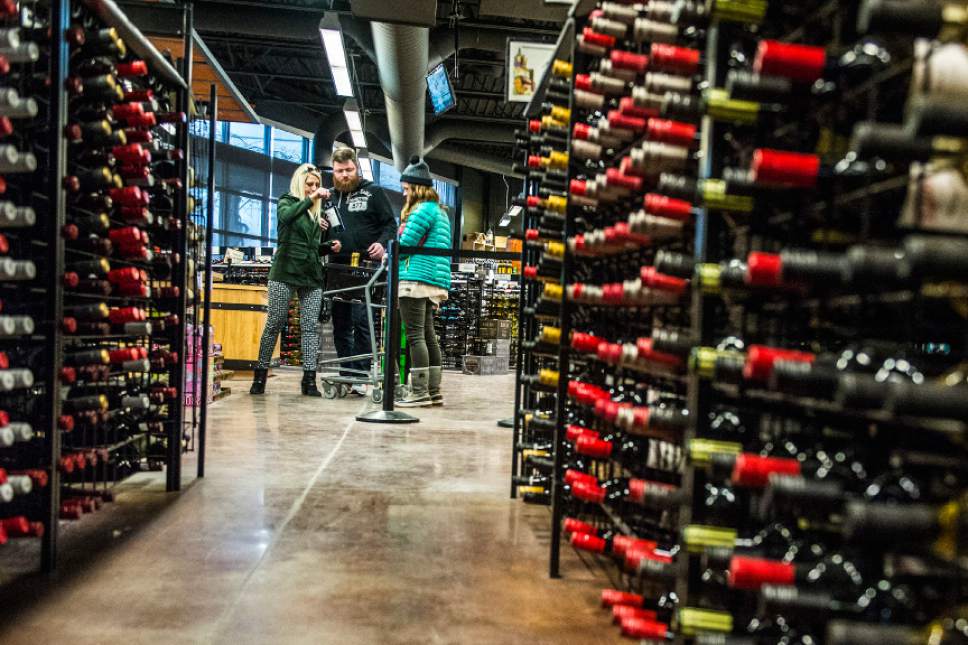This is an archived article that was published on sltrib.com in 2016, and information in the article may be outdated. It is provided only for personal research purposes and may not be reprinted.
Two Utah senators — one Republican, the other Democrat — have proposed competing pieces of legislation that would increase funding to the Utah Department of Alcoholic Beverage Control (DABC) .
A bill by Sen. Jerry Stevenson, R-Layton, calls for increasing the DABC's annual budget by $750,000. The department could use the money for new equipment, pay increases for employees and technology. Stevenson's proposal also would cover department costs such as credit-card fees, package-agency compensation and shipping and warehousing that haven't been covered in the past.
"This solves a lot of issues we've had in the last couple of years," Stevenson said Wednesday, during a presentation to the Legislature's Business and Labor Interim Committee.
A second proposal by Sen. Karen Mayne, D-West Valley City, is more generous. It would set the annual state DABC budget at 15 percent of gross liquor store revenue, a boost between $5 million and $6 million a year. The additional money would be used to boost salaries, hire more store managers, increase the number of full-time employees, provide more employee training and cover the costs incurred by the department for credit-card fees, transportation and package agencies.
"This isn't a competing bill," Mayne told the committee. "It's just a different point of view."
She said instead of trying to fix ongoing problems at the DABC with a "piecemeal approach," her plan gives the department "a stable amount and let's them plan."
The committee listened to both proposals, but took no action.
At least one member, Rep. Dixon Pitcher, R-Ogden, agreed that some sort of additional funding is needed. "We have this unbelievably successful monopoly that is a cash cow and it needs attention."
While liquor generates about $400 million in annual sales in Utah, the DABC has an operating budget of $46.6 million, or about 11 percent of revenues. That percent can change every year, because state law requires the DABC to return all its profits to the state, and the Legislature sets the department budget. The majority of liquor profits go back into the state's general fund, with a portion helping to pay for school lunch and public safety programs.
Committee members also expressed concern that neither proposal addresses the need for new liquor stores or remodeling of older facilities.
Studies have shown that the DABC needs about 18 more stores to keep up with demand and many older stores need to be replaced or remodeled, said DABC director Sal Petilos
Utah currently has 44 liquor stores, with a 45th currently under construction in West Valley City. Before any new stores can be built, the DABC must win approval from the state building board and secure funding from the Legislature. It also must get approval from the cities affected.
Petilos demurred when asked whether he preferred one funding proposal over another. "I'll leave it to the lawmakers to decide what's best," he said. "I'm sure there will be more discussion."



